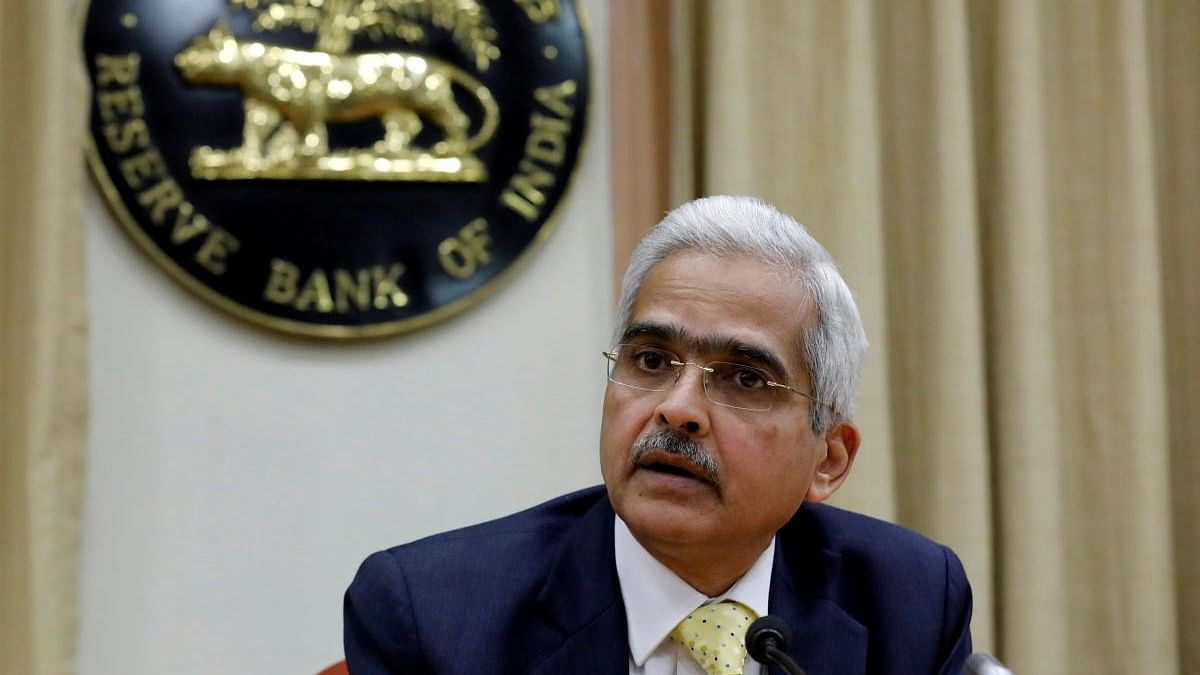
Das said he expects average CPI inflation next year to be 4.5 per cent and RBI is committed and confident of achieving the 4 per cent target at the earliest.
Credit: Reuters (File Photo)
Davos: Indian economy should record a growth rate of 7 per cent in the next fiscal and inflation is likely to ease further, RBI Governor Shaktikanta Das said on Wednesday.
He also credited the government for structural reforms undertaken in recent years, saying they have boosted the medium and long-term growth prospects of the Indian economy.
Amidst a challenging global macroeconomic environment, India presents a picture of growth and stability, he added.
Speaking at a CII session on 'High growth, low risk: The India story' during the World Economic Forum Annual Meeting, Das said recent information on the global economic front has been reassuring with inflation falling, though growth remains low.
"Chances of soft landing have improved and markets have reacted positively. However, geopolitical risks and climate risks remain matters of concern," RBI chief said.
He said the real GDP growth in India is expected at 7.2 per cent this year.
"With strong domestic demand, India remains the fastest growing major economy... We have emerged stronger out of the recent spate of global shocks," he noted.
Das further said that external balance is comfortably manageable with robust foreign exchange reserves.
"Headline inflation has substantially eased from highs of summer of 2022. This shows that our monetary policy action and rebalancing of liquidity is working. Core inflation has also gradually and steadily moderated, while proactive supply-side interventions by the government have also played a key role in handling food price shocks," he said.
Das said he expects average CPI inflation next year to be 4.5 per cent and RBI is committed and confident of achieving the 4 per cent target at the earliest.
"We expect the Indian economy to grow by 7 per cent in 2024-25," he said.
The Reserve Bank of India has been tasked by the government to ensure retail inflation remains at 4 per cent with a margin of 2 per cent on either side.
The Indian economy is poised for a long haul of higher growth, Das said, adding that all stakeholders must be unambiguous in their support and leave no room for complacency and be part of this growth story.
"We also have a big demographic advantage with about 60 per cent of the entire population soon expected to be of working age," he said.
On monetary policy, he said "we are fully committed to ensuring price stability. The government has also undertaken several structural reforms and I'm sure the pace of these reforms will continue."
On December 8, the Reserve Bank of India left its key lending rates unchanged for the fifth consecutive time and predicted faster growth in the world's fastest-growing major economy.
The RBI has raised the repo rate by a total of 250 basis points (bps) since May 2022 in efforts to cool surging inflation.
"We are also very closely working with the financial sector and our regulations will be in sync with the requirements of the time," Das said.